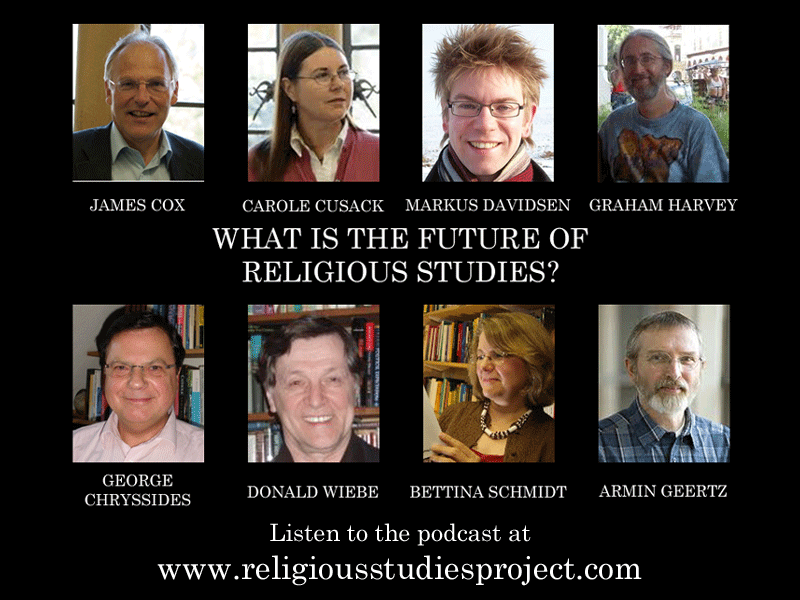This week we decided to do something a bit different. Every time David and Chris have conducted an interview, they have been asking the interviewees an additional question: “What is the Future of Religious Studies?”
The result is this highly stimulating compilation of differing perspectives and levels of optimism on what has become one of the most hotly debated topics in the academic study of religion at the start of the second decade of the twenty-first century.
The underlying motivation behind placing this question on the agenda of the Religious Studies Project was one of finances. In the current economic climate – particularly in the UK – and with the increasing commodification of the Higher Education sector. It is no longer acceptable for academics to sit pontificating in their ivory towers, and every discipline (but particularly Religious Studies) is finding itself increasingly in the firing line in terms of funding and resources. This issue is so pressing that the British Association for the Study of Religions (BASR) and the British Sociological Association’s Sociology of Religion Study Group (SOCREL) – the two professional organisations that together represent the UK’s leading scholars in the study of religion – have joined forces to present a joint panel on ‘Public benefit in the study of religion’ at the BASR annual conference, September 5-7 2012 University of Winchester, UK.
 However, this is not the only issue on the table. Topics range from interdisciplinarity and institutional conflict, to innovative new methodologies, directions and foci. Some of these academics have already appeared on the Religious Studies Project, others’ interviews have yet to be released, yet each has their own unique perspective to offer, and we hope that you appreciate this compilation.
However, this is not the only issue on the table. Topics range from interdisciplinarity and institutional conflict, to innovative new methodologies, directions and foci. Some of these academics have already appeared on the Religious Studies Project, others’ interviews have yet to be released, yet each has their own unique perspective to offer, and we hope that you appreciate this compilation.
Featured in this podcast (with links to their previously released interviews):
- Professor James Cox, University of Edinburgh
- Professor Armin Geertz, Aarhus University
- Professor Carole Cusack, University of Sydney
- Professor Donald Wiebe, University of Toronto
- Dr Graham Harvey, The Open University
- Dr George Chryssides, University of Birmingham
- Dr Bettina Schmidt, University of Wales, Trinity Saint David
- Markus Davidsen, Aarhus University
We wanted to do something special with this podcast, because it is the tenth edition of the Religious Studies Project. We hope this has been a worthwhile exercise! Later in the week, we will be releasing a ‘unique’ response to this episode, and we hope it will prove similarly worthwhile.
If you stick with us for the next ten episodes, you’ll be treated to interviews with Bettina Schmidt (University of Wales), Markus Davidsen (Aarhus University), Bejamin Beit-Hallahmi (University of Haifa), Linda Woodhead (Lancaster University), Ariela Keysar (Trinity College, Massachusetts), Bron Taylor (University of Florida) and more…

















